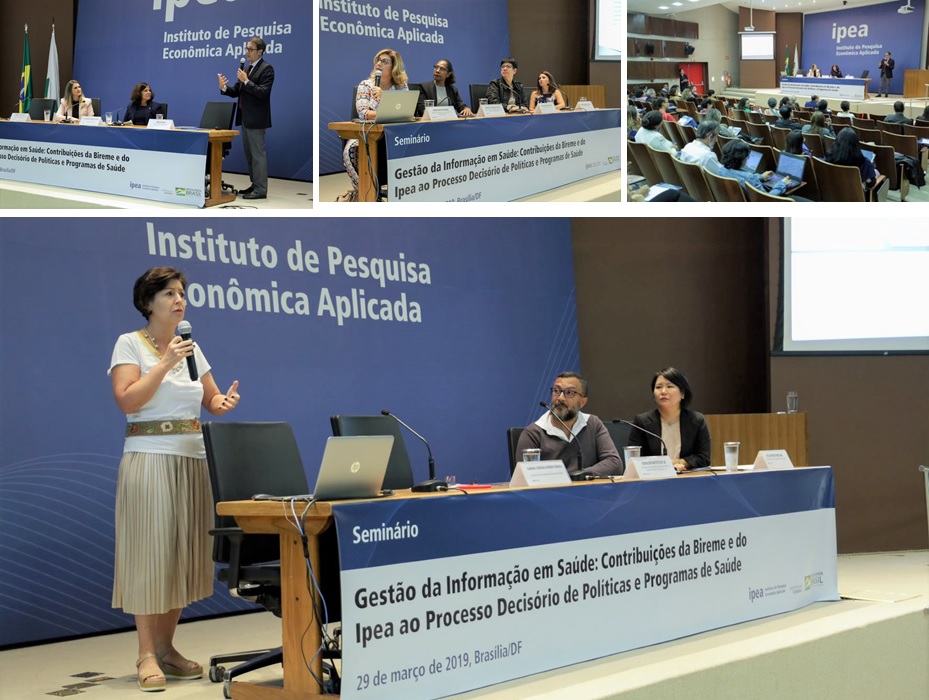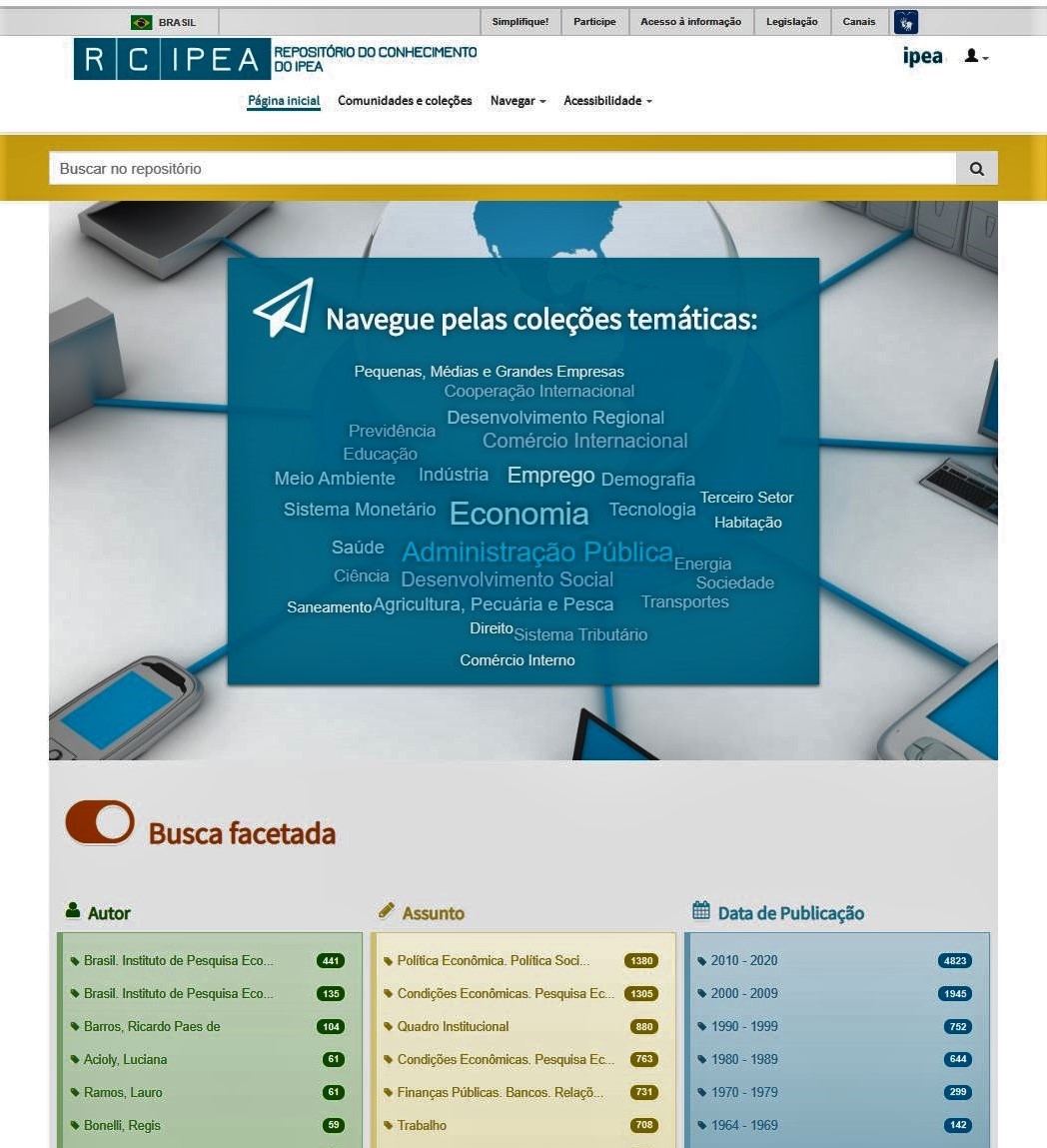A cooperation agreement between the Institute of Applied Economic Research (IPEA) and the Latin American and Caribbean Center on Health Sciences Information (BIREME) has recently been established, with the goal of indexing IPEA’s health scientific output in the Latin American and Caribbean Health Sciences Literature (LILACS) database, making it available on the internet, for free, through the different channels for the dissemination of health information adopted by the Center, especially the Virtual Health Library (VHL).
This agreement is the formalization of a cooperation that has been ongoing for two years between the teams of both institutions, which have sought alternatives to register IPEA’s production in LILACS through the interoperability between systems.
The work between the technical teams considered the pros and cons of different options, the analysis of the technical and operational feasibility, and decided to move on to the interoperability between the SophiA system and the FI-Admin system. Several months of work involved content analysis, manner of structuring and compatibilization of data fields, adaptation of the SophiA system, standardization of registered content, collection tests, and data processing.
This collaborative effort between the IPEA and BIREME teams has paid off, the interoperability worked and is in full operation. This agreement crowns this effort and gives institutional formality to the collaboration.

According to Fabíola Sulpino Vieira, specialist in Public Policies and Government Management at the Directorate of Social Studies and Policies of IPEA, “the cooperation with BIREME is very relevant to the Institute. The health field is a global pioneer in the process of consolidating extensive sources of information, through the indexing of documents to scientific literature databases. These databases are accessed from a common platform, like the Virtual Health Library (VHL), which has BIREME as its main creator and maintainer in the Region.
 The participation of IPEA as a Cooperating Center in the Health Sciences Information Network of Latin America and the Caribbean is fundamental to expand the dissemination and use of health information produced and/or published by the institute, which is the result of studies and applied research on economic, social, and public management processes; of analyses and diagnoses of structural and circumstantial problems of the Brazilian economy and society; of studies on the management of public policies and public organizations, aimed at sustainable Brazilian development; and of planning activities and technical assistance to the federal government. With this cooperation, the documents published by IPEA on health cease to be grey literature and are indexed in the most important health information database in the Region, LILACS, through the interoperability of information systems, which makes this experience one of the most successful with BIREME, considering the use of this technology.
The participation of IPEA as a Cooperating Center in the Health Sciences Information Network of Latin America and the Caribbean is fundamental to expand the dissemination and use of health information produced and/or published by the institute, which is the result of studies and applied research on economic, social, and public management processes; of analyses and diagnoses of structural and circumstantial problems of the Brazilian economy and society; of studies on the management of public policies and public organizations, aimed at sustainable Brazilian development; and of planning activities and technical assistance to the federal government. With this cooperation, the documents published by IPEA on health cease to be grey literature and are indexed in the most important health information database in the Region, LILACS, through the interoperability of information systems, which makes this experience one of the most successful with BIREME, considering the use of this technology.
According to Diego González, Director of BIREME, the Center that is part of the Evidence and Intelligence for Action in Health Department, EIH/PAHO/WHO, “the work with IPEA is aligned with the Organization’s and the 2030 Agenda recommendations to work with other sectors outside the health sector; in this case, the Economic Sector, and it is something that we have incorporated as a priority of the Center.”
Related post:
IPEA output available on LILACS through interoperability between systems. Bireme Bulletin n° 31. Available from: http://boletin.bireme.org/en/2019/04/27/ipea-output-available-on-lilacs-through-interoperability-between-systems/